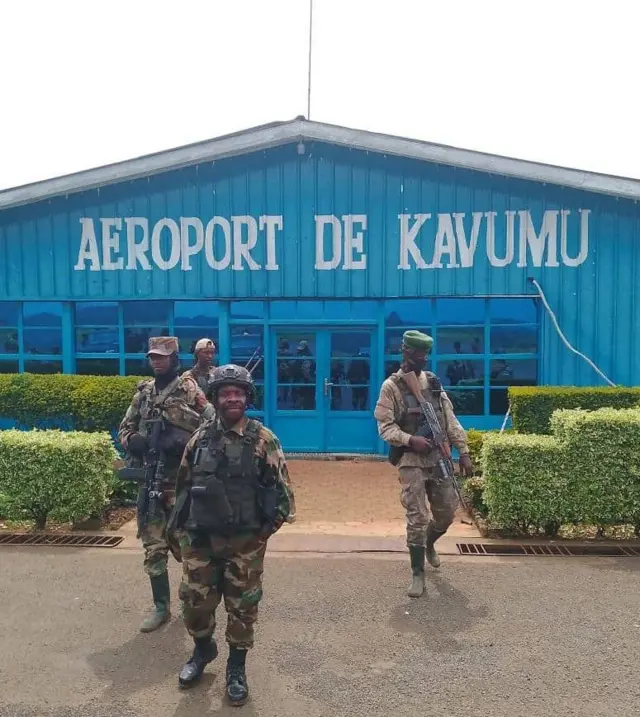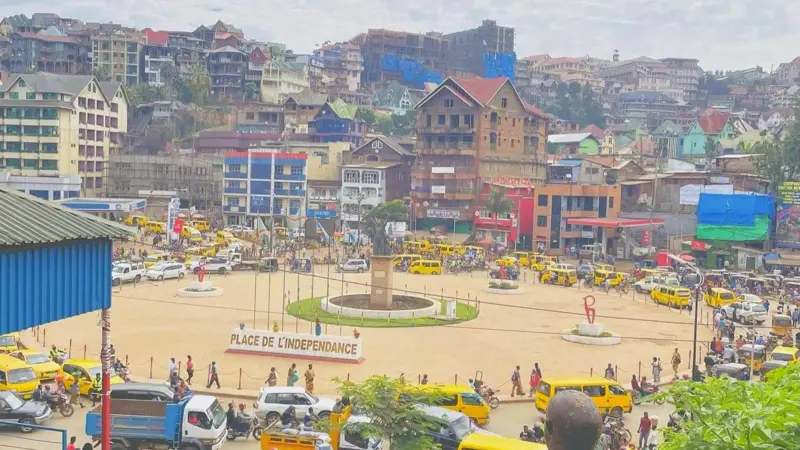Various sources confirm that the city of Bukavu has fallen under the control of M23 rebels since Friday evening, following the retreat of government forces and South Kivu provincial authorities.
A journalist from Radio Maendeleo in Bukavu told the BBC that M23 fighters had entered the city in large numbers, seizing various areas. He said, “By the evening, they had reached Place de l’Indépendance in the city center after capturing Kavumu from the north, advancing into Kabare and Bagira. The Kadutu commune of the city was also under their control.”
The UN’s Radio Okapi reported that Bukavu was taken by M23 after government troops abandoned their barracks and fled. Reuters quoted Corneille Nangaa, leader of AFC/M23, saying, “I can confirm that we entered Bukavu this evening, and tomorrow we will continue efforts to secure the city.”
After Kavumu fell on Friday afternoon, Bukavu was gripped by panic and fear. A journalist in the city said, “No one expected Kavumu to fall like that. When fleeing soldiers arrived in the city, there was chaos, rumors spreading everywhere.”
The Catholic Church and civil society in South Kivu had earlier warned that fighting in Bukavu could lead to significant bloodshed. However, the journalist noted that, while gunfire was heard in parts of the city, “there was no major battle.”
Radio Okapi reported that M23 rebels entered the city unopposed, with residents watching. Reuters also confirmed that Congolese and Burundian forces stationed at Saio, Bukavu’s main military base, withdrew from the city.
The capture of Bukavu occurred as President Félix Tshisekedi was attending an annual global security conference in Munich, Germany. He accused the Rwandan army of backing the M23 offensive, stating that “they seek to seize land and loot resources.” He urged the international community to impose sanctions on Rwanda.
Rwanda’s Defense Minister, Juvenal Marizamunda, denied the allegations, asserting that “Rwanda has never and will never invade Congo.” He stated that Rwanda is focused on securing its borders against the FDLR, a rebel group opposing Kigali that allegedly collaborates with Kinshasa.
Tshisekedi also accused former President Joseph Kabila of being behind the crisis, though he did not provide evidence. On social media, Barbara Nzimbi, Kabila’s spokesperson, dismissed the claims, saying, “Tshisekedi always blames others instead of solving the country’s problems.”

M23 has continued to capture more areas in South Kivu, including Kalehe and Kavumu. Videos circulating online show government soldiers fleeing, claiming they were outgunned and lacked supplies.
Regional leaders, including Presidents Cyril Ramaphosa of South Africa and João Lourenço of Angola, have called for inclusive negotiations involving all parties, including M23. However, the Kinshasa government has repeatedly stated that it will not negotiate with M23.
The African Union Summit in Addis Ababa is expected to discuss the ongoing crisis in DR Congo. President Tshisekedi cut short his visit to Munich to return home, though it is unclear if he will attend the summit.
For now, Bukavu remains in a state of fear and uncertainty, with reports of looting in some parts of the city. It is still unclear how the Congolese government plans to address the rapidly escalating conflict.



